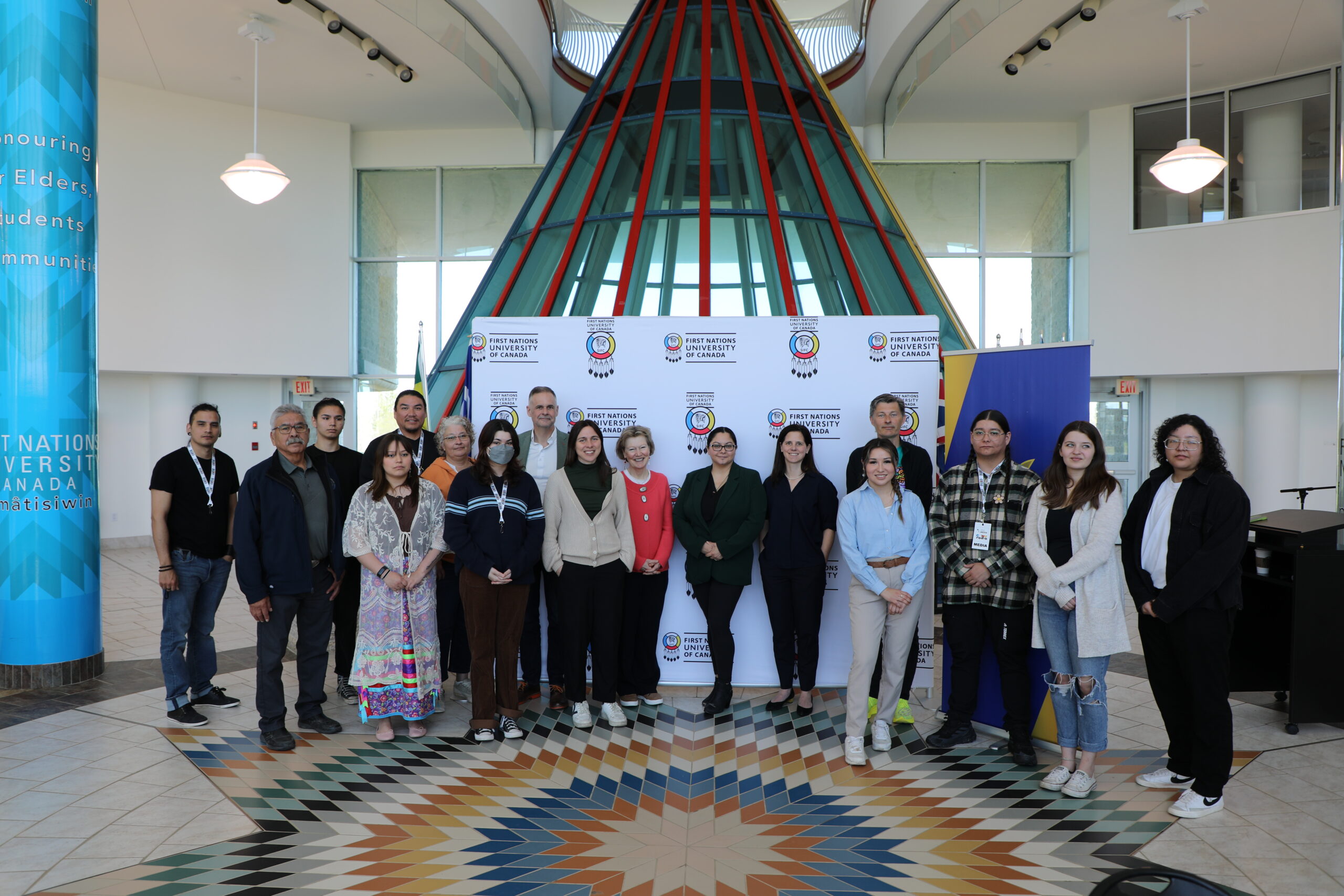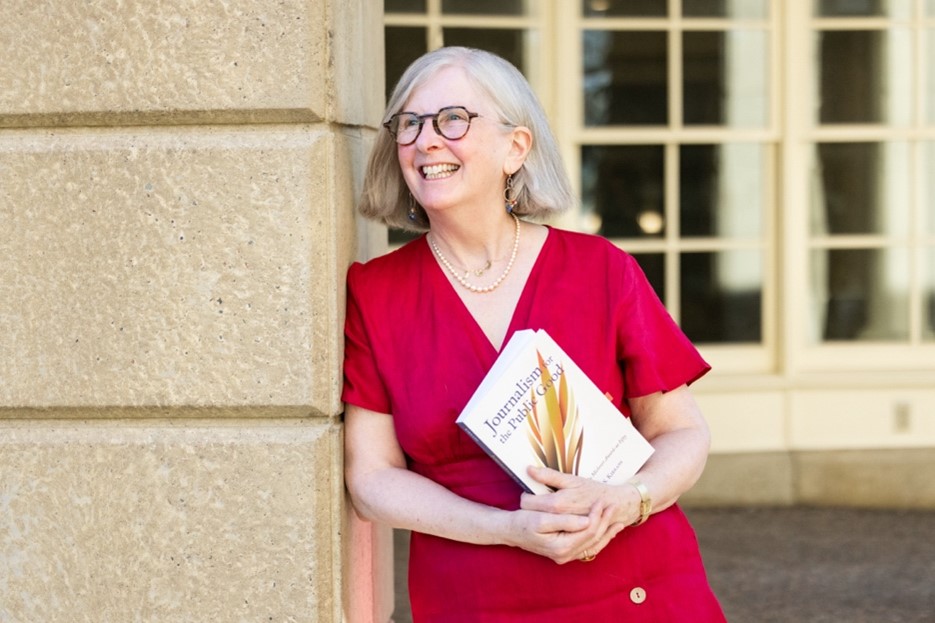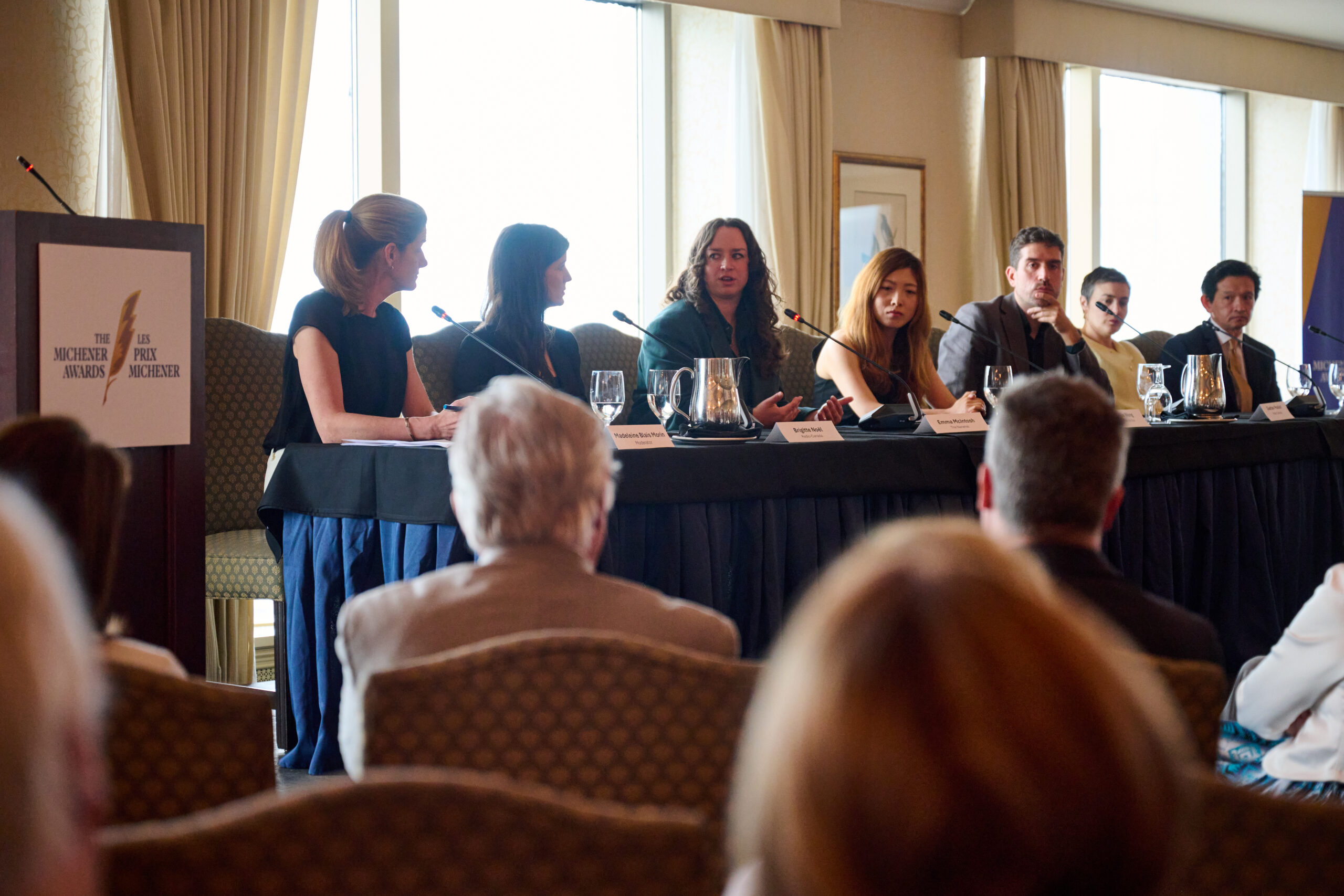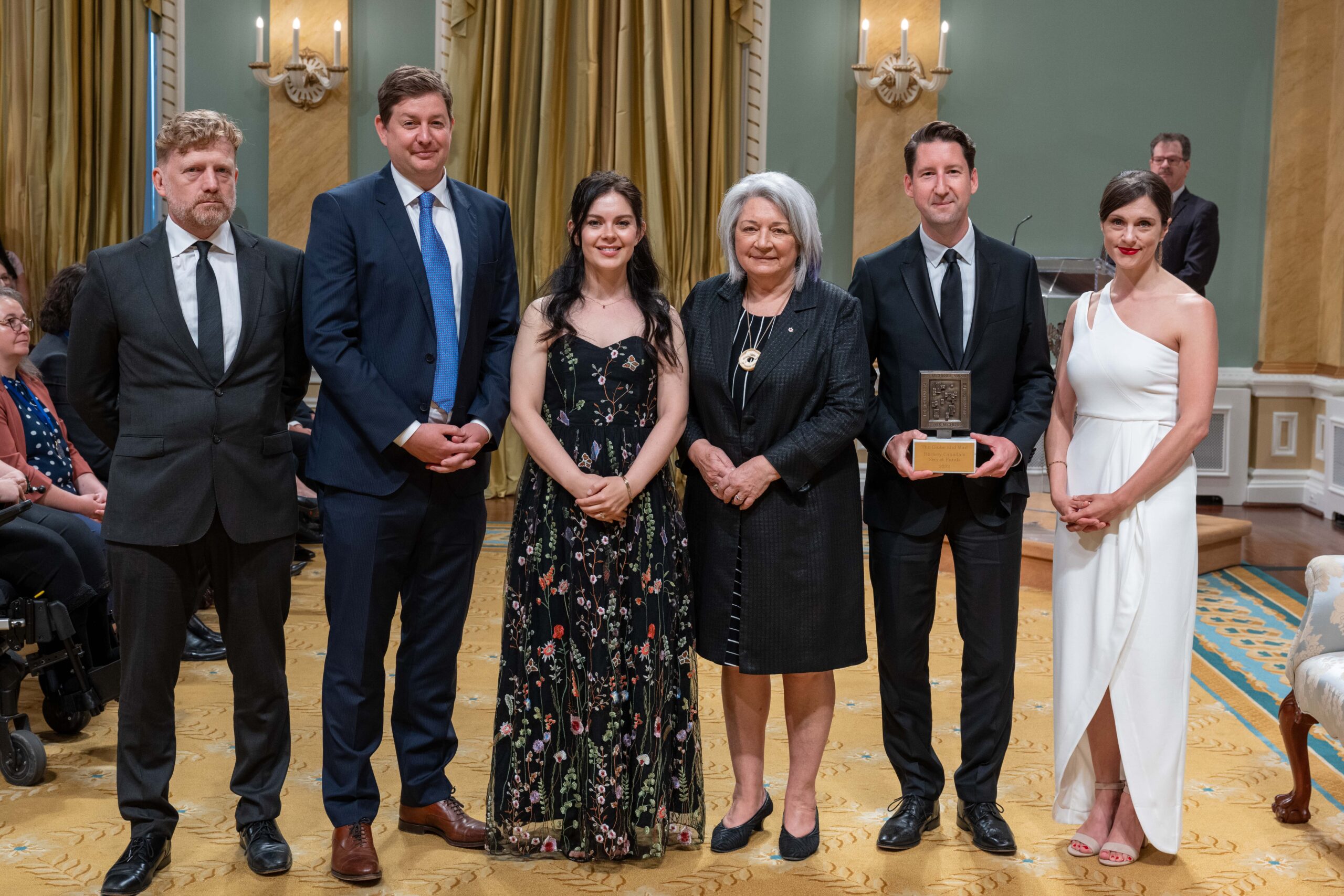In May 2024, the Michener Awards Foundation hosted a special event at First Nations University of Canada (FNU)’s campus in Regina, Saskatchewan, which is situated on the atim kâ-mihkosit (Red Dog) Urban Reserve, Star Blanket Cree Nation, and Treaty 4 Territory. Michener Award finalists and winners came together for a panel to discuss their work and what they had done to earn their Michener honours with students at FNU’s journalism school. Participants discussed the importance of public service journalism and provided special expertise from experienced journalists on the topics of justice for survivors, investigating powerful institutions, and reporting on dangerous people and situations. In addition, this event celebrated FNU’s launch of Canada’s first four-year degree program in Indigenous Journalism/Communications, with many of the program’s students engaging in its discussions and activities.
To begin the event, Dr. Carrie LaVallie, Vice-President-Academic at FNU, spoke of the school’s importance as an Indigenous owned and operated institution that “prioritizes Indigenous knowing, being, and doing”. When addressing the students in the audience, Dr. LaVallie encouraged them to “listen, learn, share, and change in the service of bringing truth, even in dangerous situations”. To build upon this call to action, FNU Assistant Professor and Michener Awards Foundation Board Member Merelda Fiddler-Potter highlighted the importance of public service journalism to Indigenous communities, expressing how it can involve unimaginable risk and can take incredible courage.
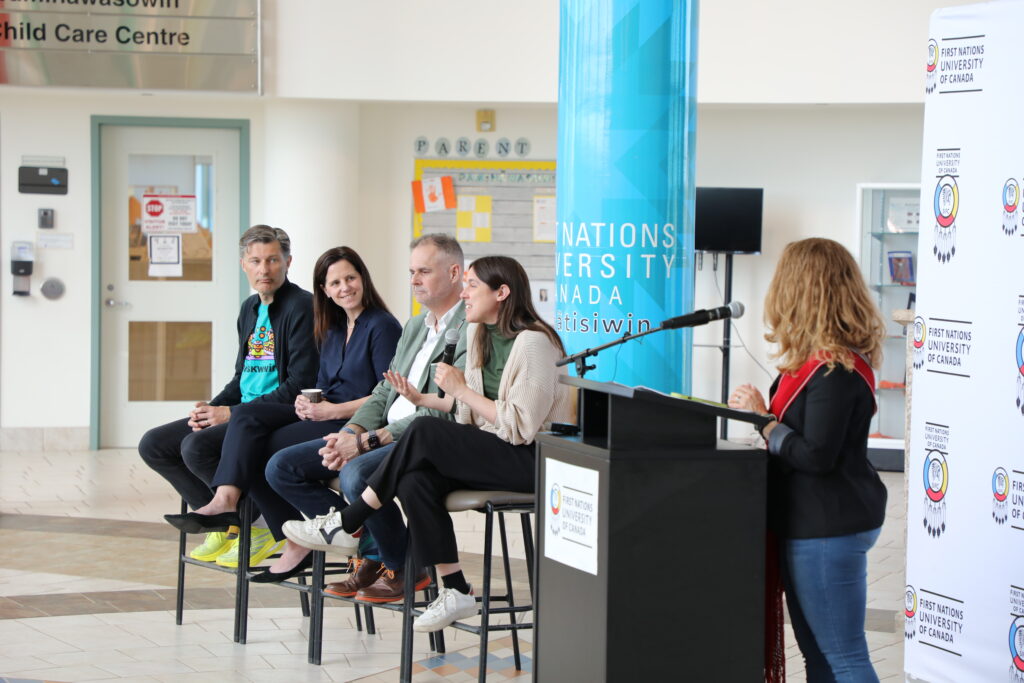
Left to Right: Jason Warick (CBC), Nancy McDonald (The Globe and Mail), Paul MacNeill (The Eastern Graphic), and Caroline Touzin (La Presse)
After the opening remarks, Jason Warick (CBC), Nancy McDonald (The Globe and Mail), Paul MacNeill (The Eastern Graphic), and Caroline Touzin (La Presse) engaged in a panel discussion on their work and experiences as journalists in Canada. To begin this discussion, Paul MacNeill, a Michener Finalist for his work on Through the Cracks, spoke to the future reporters in the room, expressing how “the opportunity that you will face in your career is really quite compelling, because you get to decide what you want to do and how you want to do it […] To me, it’s an exciting time [to see] the way the media is moving”.
Jason Warick, who won the 2021 Michener Winner for his work on CBC Saskatoon’s Inside the failed push to make Catholic Church pay for its residential school abuses, begun his conversation by noting how “the stories that we are going to be talking about today, as we said, are very heavy, but they are necessary to shine a light on what has happened, to correct inaccurate perceptions and history, but also to hopefully set us on a good path forward”. In particular, he expressed how his work “begins and ends with the survivors […] we are here, but I think everyone would agree that the people who trusted us with their stories are the real ones to be honoured”.
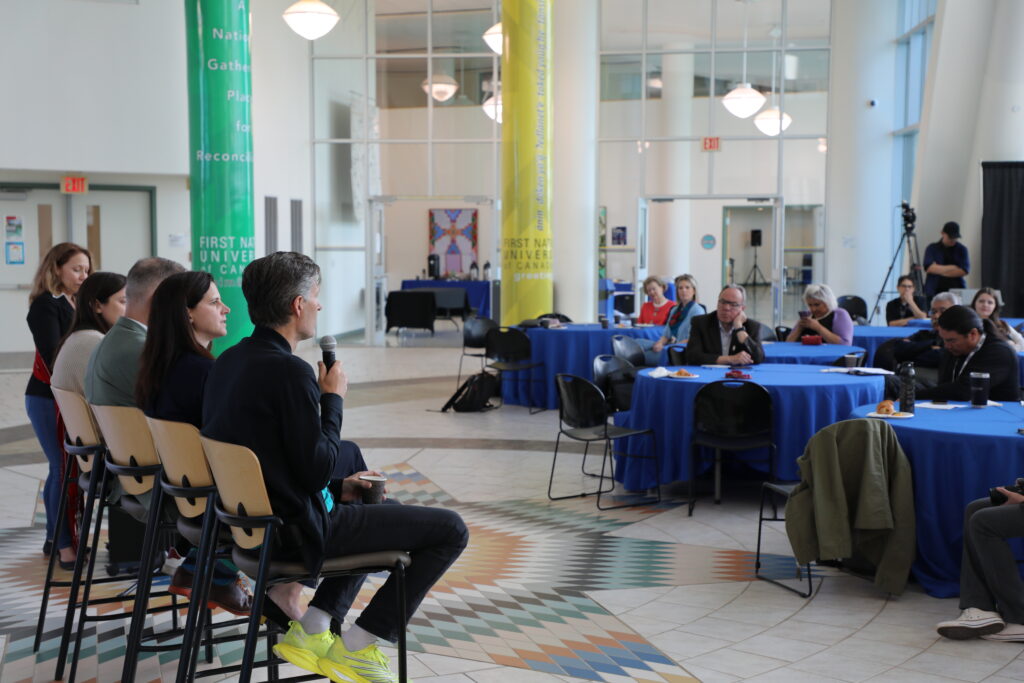
Jason Warick speaking on his experience as a journalist working with residential school survivors.
When discussing her start as a journalist, Nancy McDonald, a 2022 Michener Finalist for her work on Who Failed Traevon?, noted that her feelings of rage in response to injustice motivated her to ask questions. “When you are angry, that shyness just goes away,” she noted. “All you want to do is fight for the person or the thing you want to see changed.”
Caroline Touzin, a 2020 Michener Finalist for her work on The Other Epidemic: sexual exploitation of kids on the internet, noted that often young reporters are underestimated. In particular, she expressed that “When you know that you have good questions, don’t be shy to ask [them], and record everything!” By pulling from her own experiences, she detailed how “you have to begin in your community, in your own city, and go out: stories are everywhere, […] small stories can become begin stories”.
This panel was followed by a series of breakout sessions on AI and data-driven stories; trolling for information on big institutions; reporting on difficult issues; and working in traumatized communities. The result was an engaged and inspired group of journalism students who now have a better understanding of the Michener program and the importance of public service journalism.
